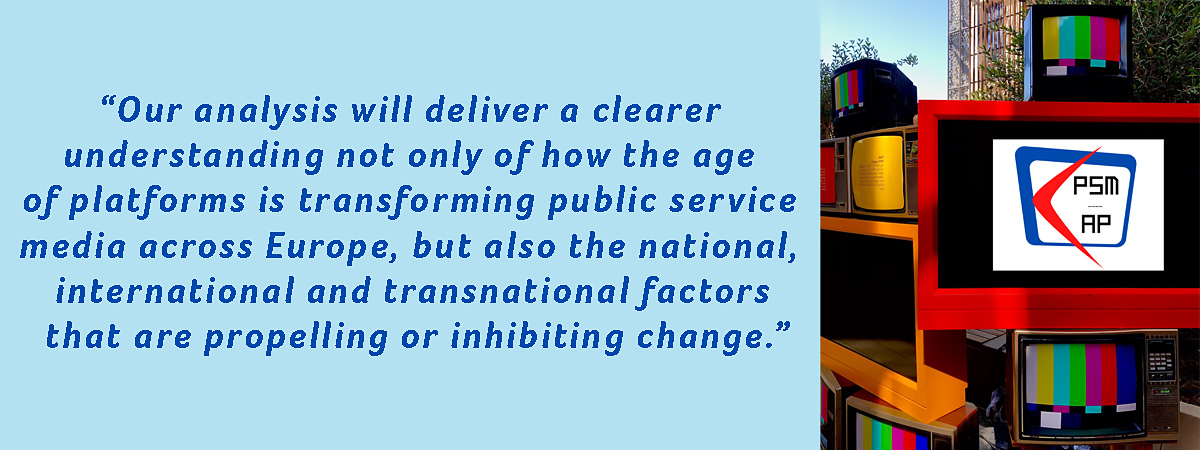IN the UK alone, the last decade has witnessed a huge change in the way people watch television. Public service media organisations, such as the BBC, ITV, and so on, now must compete with global streaming services such as Netflix, YouTube, Amazon Prime Video, etc… for audiences, revenue as well as talent.
Now, a major international project entitled 'Public Service Media in the Age of Platforms' (PSM-AP) is to be led by the University of Huddersfield and will be the first of its kind on this scale. The project has been awarded €1.5million by the Collaboration of Humanities and Social Sciences in Europe (CHANSE) to enable researchers to engage with public service broadcasters around the world to discover what exactly is happening to the industry globally.
Leading the research is the University's Professor Catherine Johnson who has a long track record of working closely with digital media industry partners. Widely regarded as one of the industry's leading media and communications experts, Professor Johnson will oversee and work with project partners based in Belgium, Canada, Denmark, Italy, and the UK in order to carry out the necessary research.
 The international project entitled 'Public Service Media in the Age of Platforms' (PSM-AP) will be led by the University of Huddersfield and is the first of its kind on this scale. (Image by Micolas J Leclercq on Unsplash)
The international project entitled 'Public Service Media in the Age of Platforms' (PSM-AP) will be led by the University of Huddersfield and is the first of its kind on this scale. (Image by Micolas J Leclercq on Unsplash) Professor Johnson was recently appointed as one of the advisors to the Government's Department of Digital, Culture, Media and Sport's College of Experts and explained that public service broadcasters are still very much watched across many countries that have public service broadcasting, however, there has been a shift towards on-demand viewing and watching on YouTube, Tik Tok, etc….
"Public Service Media organisations have responded to this," she said, "by developing new production, delivery and aesthetic practices that could alter, undermine, or enhance the value that they provide to society and culture.
"To understand how and why the rise of global platforms and streaming is transforming public service media, this project will utilise a comparative framework that builds on the six public service values of universality, independence, excellence, diversity, accountability and innovation as outlined by the European Broadcasting Union," she added.
The framework will be used to analyse 130 in-depth interviews with commissioning, channel/service, curation and audience research teams, the programmes and catalogues of public service media organisations, and trade, regulatory and policy documents in six countries: Belgium, Canada, Denmark, Italy, Poland and the UK.
"Our analysis will deliver a clearer understanding not only of how the age of platforms is transforming public service media across Europe but also the national, international, and transnational factors that are propelling or inhibiting change," said Professor Johnson.
The findings from this three-year research project will be disseminated and used to deliver recommendations to policymakers as well as industry leaders with advice on how to secure the ongoing public value of public service broadcasting through industry workshops, reports, policy briefs, blogs and press articles.






